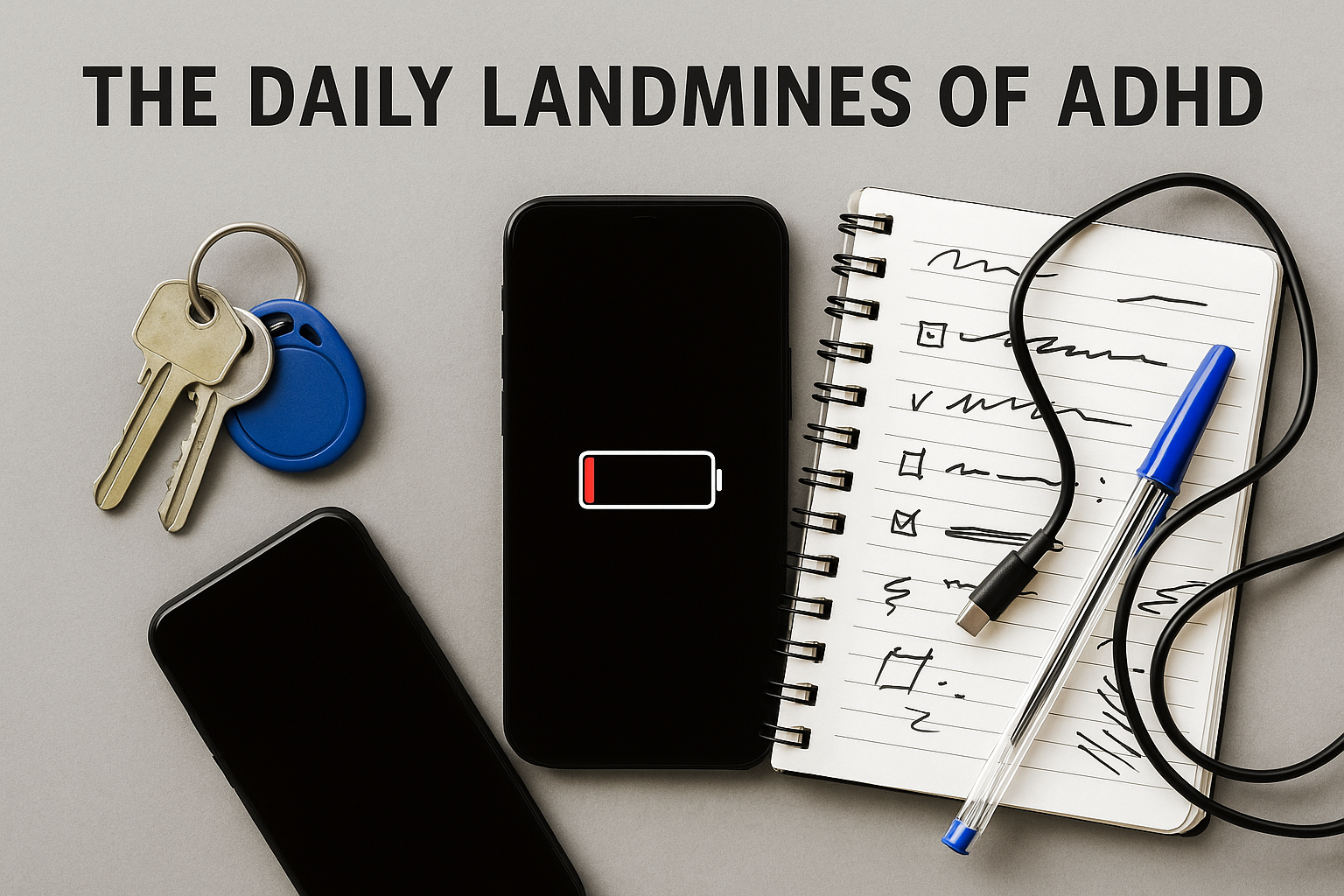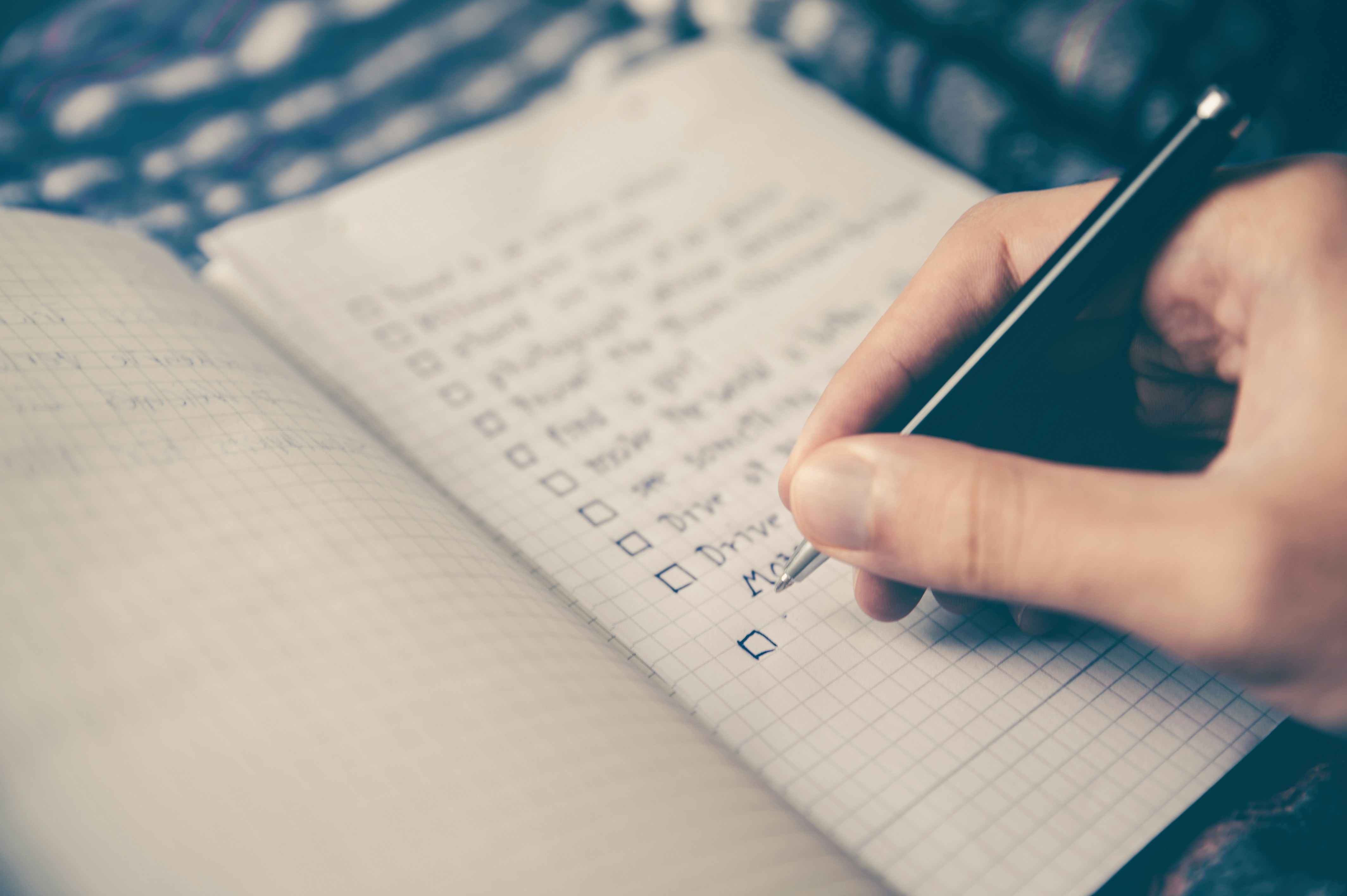When ADHD Meets Everyday Life: Small Wins That Change Everything

Living with ADHD means that no two days ever look the same. Some days, I feel like I’m moving at lightning speed, hyperfocused and knocking things off my list. Other days, I can’t seem to hold onto even the simplest detail, and life feels like one long comedy of errors.
The truth is, ADHD isn’t just about focus. It shows up in the little, everyday moments, the ones that seem small to others but can leave us feeling frustrated, embarrassed, or behind. But here’s the thing I’ve learned: those small moments don’t have to define us. With the right mindset and tools, they can actually become stepping stones to resilience.
This journal is about the daily challenges ADHD throws at us, the humor and humanity hidden in them, and why celebrating small wins is often the key to thriving.
The Daily Landmines of ADHD

Let’s be real: ADHD isn’t always dramatic. It’s not always the big deadline missed or the huge project derailed. More often, it’s the tiny, repeated slip-ups that add up.
For me, these show up in ways like:
-
Losing my keys… again. I can’t count how many mornings have started with a frantic search through the couch cushions, jacket pockets, and the fridge (yes, I once left my keys in the fridge).
-
Forgetting to set alarms. There’s nothing like waking up an hour late and realizing you forgot to hit “save” when setting your alarm the night before.
-
Messy multitasking. I’ve spilled smoothies on myself while trying to check emails, answer a text, and blend fruit at the same time.
-
Battery panic. More than once, I’ve left my phone uncharged overnight, only to wake up with 3% battery and no charger nearby.
Individually, these things might sound funny. And sometimes, they are. But when they pile up, they can also create stress, shame, and the feeling of always being one step behind.
Finding Humor in the Chaos
One of the most powerful tools I’ve discovered is humor. If I can laugh at myself when I do something like put my laptop charger in the fridge (yes, I really did that), the mistake loses some of its sting.
ADHD can be heavy. It can carry labels like “lazy” or “irresponsible” from people who don’t understand what it’s like to live in this brain. Humor is a way of reclaiming those moments. It says: Yes, this happened, and it’s part of my story but it doesn’t make me less capable or less worthy.
There’s a kind of resilience that comes from being able to laugh at your own forgetfulness and move on. It doesn’t mean ignoring the challenges. It means refusing to let them define you.
Small Wins Change Everything

The other lesson ADHD has taught me is that small wins matter more than we realize.
When I remember to put my keys in the same place two days in a row, that’s a win. When I manage to set my alarm the night before, that’s a win. When I charge my phone before bed, that’s a win.
These may sound like nothing to someone else. But to me, they’re victories. Each one is proof that with a little structure and a lot of persistence, I can outsmart the patterns that usually trip me up.
And those small wins add up. They build confidence. They give me momentum. They remind me that progress isn’t about becoming “perfect”. It’s about stacking tiny improvements until they become habits.
The Role of Tools and Systems
I don’t get these wins by willpower alone. I rely on systems, both digital and physical to keep me on track.
-
Key hooks by the door. It sounds ridiculously simple, but putting a hook by the door has saved me from endless frantic searches.
-
Charging stations. I set up a spot where my phone and laptop live overnight. It removes the guesswork.
-
Multiple alarms. I don’t trust one alarm. I set two or three, sometimes on different devices, because I know myself.
-
Digital nudges. Apps like calendars, timers, and streak trackers give me the push I need to stay consistent.
These aren’t fancy hacks. They’re practical scaffolds that make daily life smoother. And when I stick to them, I get to enjoy more small wins and fewer chaotic mornings.
Reframing “Mistakes” as Lessons
Here’s another shift that’s been game-changing: treating mistakes as lessons instead of failures.
If I forget to charge my phone and end up scrambling the next morning, I don’t beat myself up anymore. Instead, I ask: What system can I put in place so this doesn’t happen again? That’s how I ended up creating my nighttime checklist.
ADHD brains aren’t great at learning from abstract consequences. We learn from immediate feedback. So I’ve learned to give myself that feedback in constructive ways, systems that reward me for doing the right thing, instead of punishing me for forgetting.
How This Connects to Bonding Health
This philosophy, small wins, humor, and reframes is baked into Bonding Health.
Our Qiks aren’t about doing everything perfectly. They’re about taking a few minutes each day to regulate emotions, shift perspective, and build habits. They’re small by design, because small wins stick.
We also use rewards, streaks, and bonds because ADHD brains thrive on visible progress. When you see that you’ve completed ten Qiks in a row, that streak isn’t just a number. It’s proof you’re capable of consistency. And that proof builds confidence.
The app becomes the same kind of scaffolding I use in my own life, a support system that turns daily chaos into manageable, even empowering, moments.
The Bigger Picture
At the end of the day, ADHD isn’t just about focus. It’s about how we experience life moment to moment. And while the world often highlights our slip-ups, we have the power to highlight our wins.
By celebrating small victories, laughing at the inevitable mistakes, and leaning on tools that support us, we can turn ADHD from a daily frustration into a journey of resilience.
The beauty is that these lessons don’t just apply to ADHD. Everyone benefits from small wins, from humor, from better systems. ADHD just forces us to learn them faster.
Final Thoughts
Yes, I’ve spilled smoothies on myself, lost my keys in the fridge, and woken up late more times than I can count. But I’ve also learned to laugh, to adapt, and to celebrate when I get it right.
ADHD doesn’t have to mean living in constant chaos. It means learning to see progress differently. For me, the small wins are everything. They change my mood, my confidence, and my ability to keep moving forward.
So if you’re reading this and beating yourself up for the little mistakes, stop. Celebrate the small wins instead. Because when ADHD meets everyday life, it’s those small wins that truly change everything.


